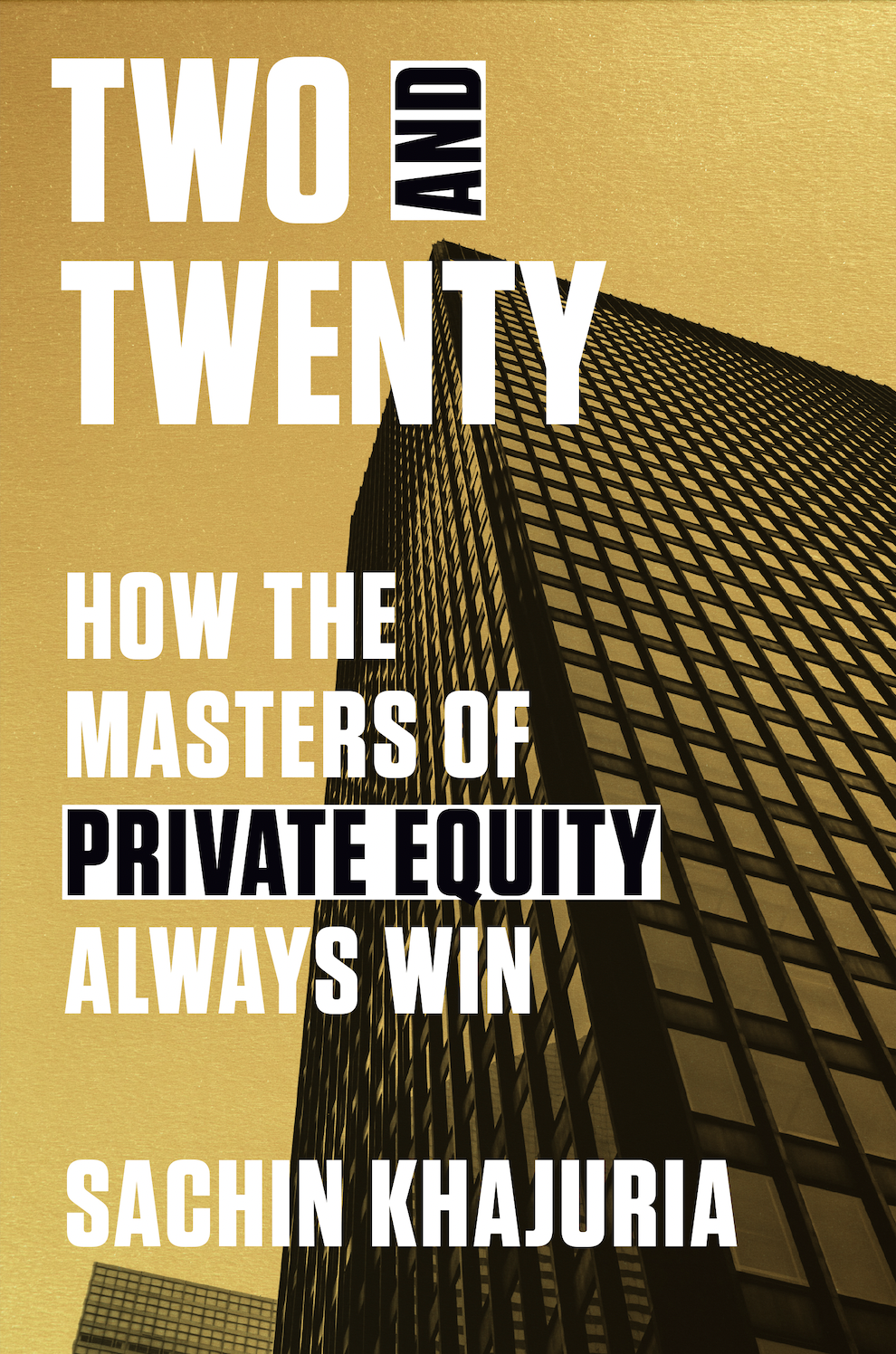- In "Two and Twenty," a former partner at Apollo Global gives an insider's analysis of private equity.
- The author aims to defend the highly-criticized industry, but fails to support his argument with data.
- This is an opinion column. The thoughts expressed are those of the writer.
The title of a new book by a private equity insider left me anticipating a juicy tell-all about the inner workings of the industry.
"Two and Twenty: How the Masters of Private Equity Always Win" is the work of Sachin Khajuria, a former partner at Apollo Global, one of the handful of largest private equity firms in the world.
The title, however — like much else in Khajuria's perplexing tome — is profoundly misleading.
The term "Two and Twenty" refers to the mechanism by which the partners of private equity firms make their money. It comprises a 2% ongoing management fee payable on the total capital invested in the funds and a 20% performance fee tied to the value appreciation in the companies purchased by the fund. Those entrusting their wealth to the private equity funds get what is left over: namely, 80% of the gains from the fund investments after the management fees.
Anyone with a passing familiarity with these economics knows the answer to the almost rhetorical question of

how "the masters of private equity" are able to always win: for the larger firms, the "Two" of the "Two and Twenty" ensures truly extraordinary wealth for the partners even if the investment performance is poor. Any firm with $50 billion in assets under management (AUM) will generate $1 billion in management fees each year to share among the general partners once expenses are covered regardless of whether there are any performance fees at all. The largest private equity firm, Blackstone, expects to reach a trillion dollars of AUM this year.
It turns out, however, that Khajuria has a very different answer in mind
Instead, the author wants to convince readers that the reason the masters of private equity always win is that they are awesome.
Two and Twenty argues that the winning mindset of the best and brightest drawn to private equity allows them to "always beat the market." In addition, as the largest firms amass more and more assets, it makes them even more effective. This, Khajuria claims, is good for society because the massive resulting returns accrue "to a substantial extent … to the retirees of tomorrow."
With the explosion in the size of the sector over the past decade — managing almost $10 trillion in assets as of last year and growing — private equity has increasingly drawn the ire of legislators, regulators, and crusading journalists. The time is right for a book to provide a thoughtful counternarrative defending the industry that puts private equity in proper context.
Unfortunately, 'Two and Twenty' is not that book
Khajuria's approach is to make a number of assertions regarding the private equity industry and demonstrate their validity through case studies drawn from his personal experiences. But many of the book's key claims lend themselves to a more direct methodology: looking at the data.
One of the core strengths of the biggest private equity firms ,according to Khajuria, is their access to huge caches of proprietary data. Yet he fails to make reference to any of the voluminous data on private equity publicly available. That data does not support his many sweeping claims — on consistently superior performance, on the advantages of fund size, and more.
At times, Khajuria focuses only on the subset of private equity firms that are able to consistently generate investment returns above the market rather than the entire industry. But the data still does not support this narrower approach, as research that the fact that a firm's last fund is a winner does not tell you anything about whether the next fund will be.
The failure to ground the book in actual data would not be the end of the world if Khajuria delivered a revealing insider account that supported his perspective.
And here is where 'Two and Twenty' gets really strange
In lieu of convincing anecdotes from his actual experience, we are treated to "fictitious sketches," and told that at least some, but not all, of these "are inspired by real-life deals and events." Where so inspired, "certain details" have been masked or changed.
Some of these changes are just bizarre. The location of an unnamed private equity firm's 2021 annual meeting is identified as the Four Seasons Hotel on Fifth Avenue. The Four Seasons is on 57th Street and has been closed since March 2020. The hotel reappears later in the book at its correct address.
More confounding is that the facts included in the fictional sketches, whether inspired or just made up, often contradict the broader portrait that Khajuria is trying to paint. On the one hand, he wants to correct misconceptions about this industry promoted by "some in the press," emphasizing, for instance, the "serious and visible progress" being made in areas like diversity, sustainability and disclosure.
On the other hand, the sketches often reinforce many of the more negative preconceptions about private equity practices. A company founder facing a crisis is romanced by the firm, but once he takes their money "the old man will be left on the side of the road if he is not on board" with their plans. The game plan for another buyout is to "cut out the fat by negotiating hard with trade unions and suppliers" and quickly "flip it to an Asian conglomerate" at the first bullish window of opportunity.
Khajuria seems to justify some of the more questionable practices by emphasizing that the spoils — after taking out the two and twenty along with a long list of other fees that he only mentions in passing — accrue to retirees through the investments of their pension funds.
While repeatedly emphasizing the benefits to "the financial security of our loved ones," he fails to mention that the less sympathetic sovereign wealth funds dwarf the largest US pensions as private equity investors. Teachers and firefighters are mentioned repeatedly; China and the UAE, the two largest sovereign wealth investors in private equity who together account for more than all US pension funds combined, not at all.
It's hard to disagree with Khajuria that given the already huge and growing influence of all forms of private capital, greater public understanding about private capital is "essential."
Despite its ambitions, Two and Twenty makes a rather modest contribution towards achieving that laudable objective.
Jonathan A. Knee is a professor of professional practice at Columbia Business School and a senior advisor at Evercore. His most recent book is "The Platform Delusion: Who Wins and Who Loses in the Age of Tech Titans."
